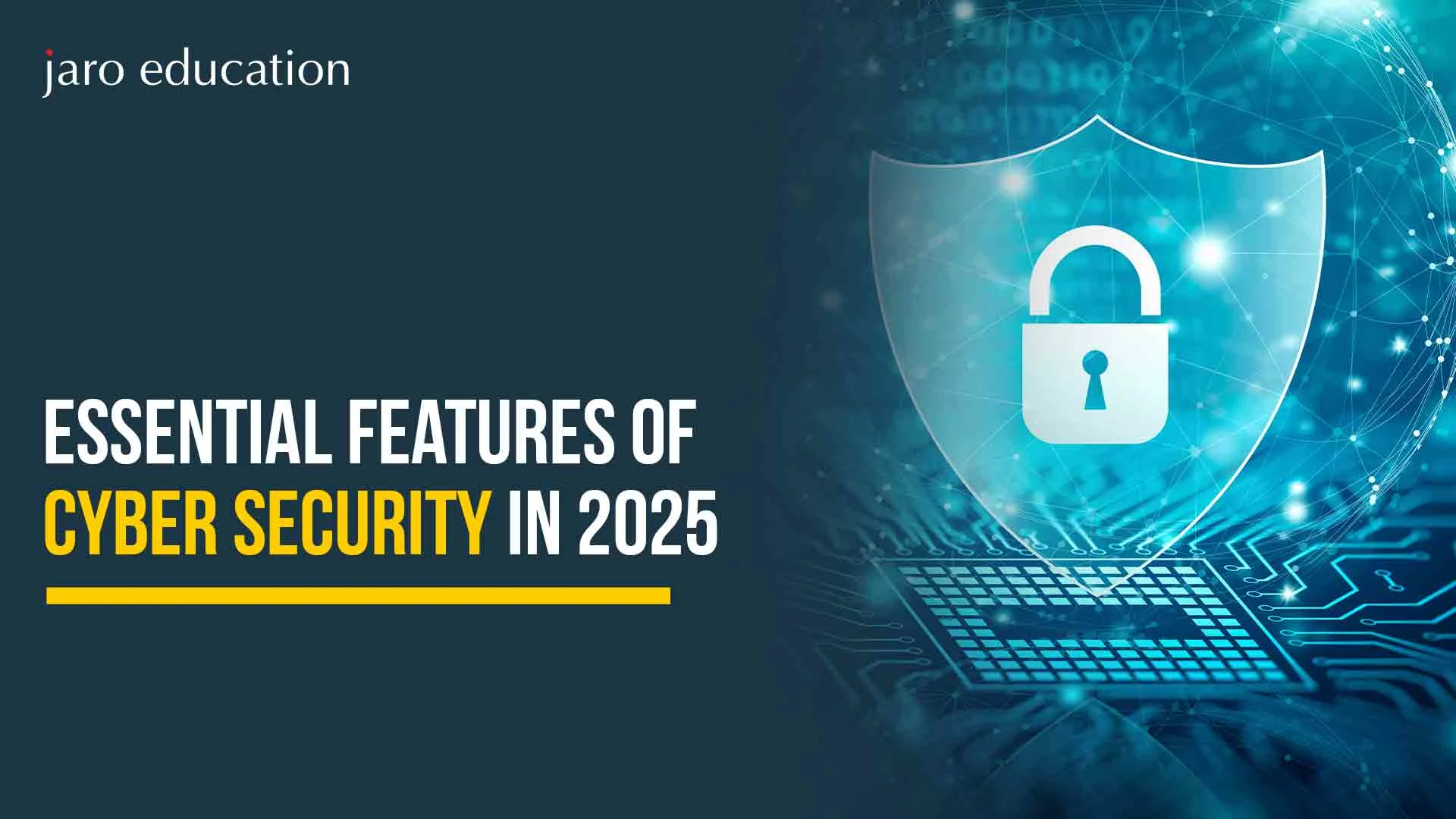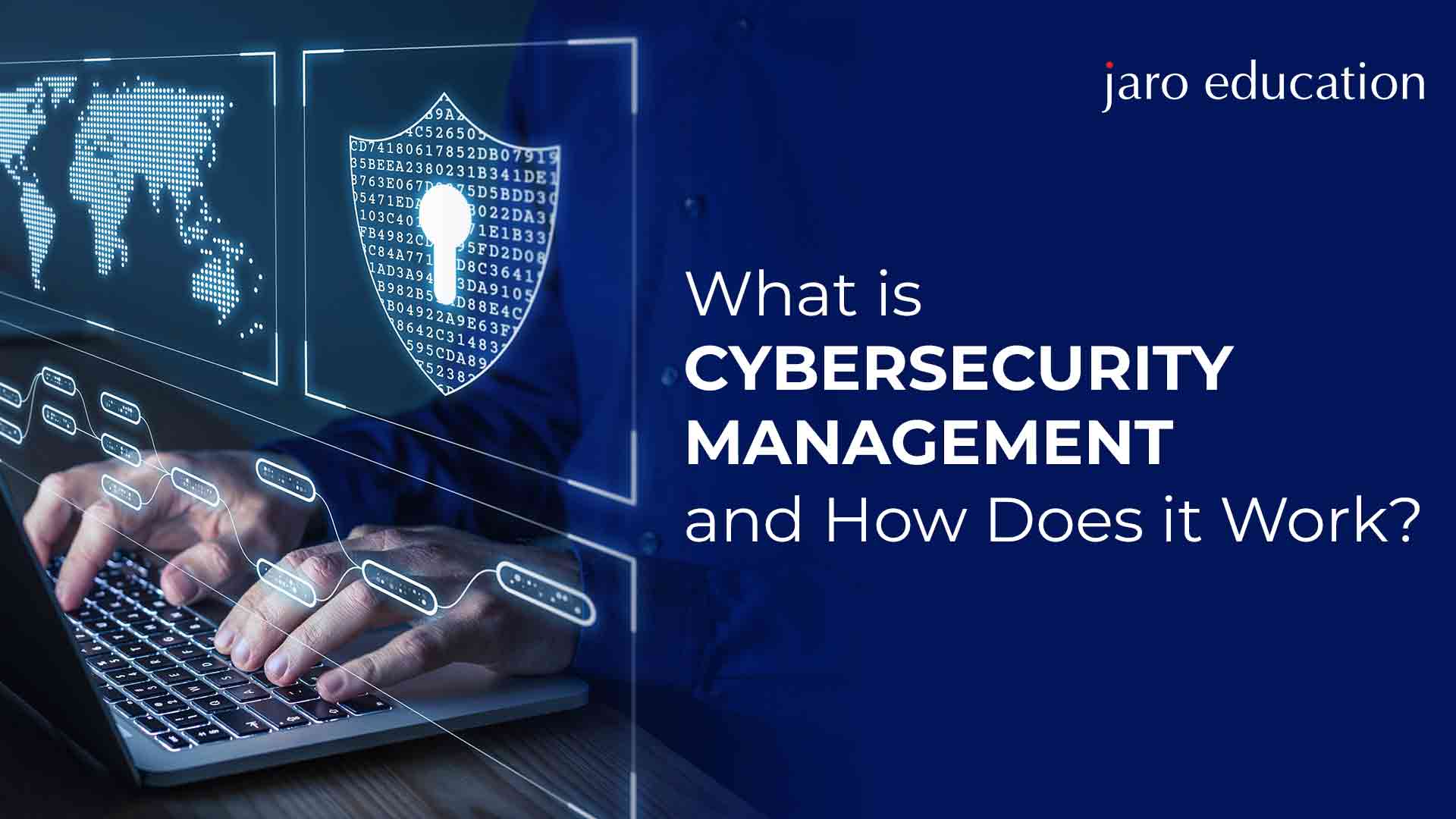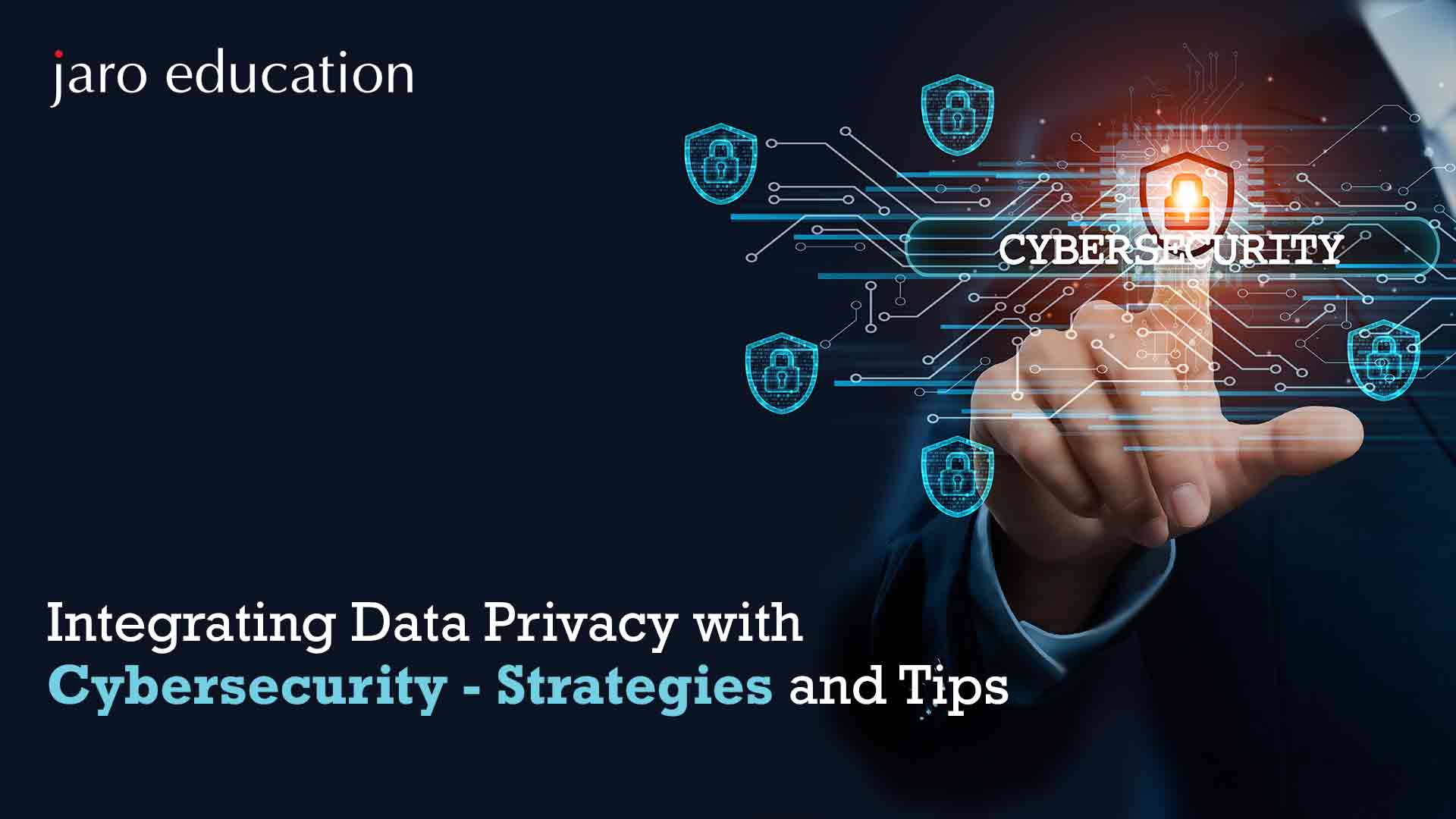How to Become a Cybersecurity Analyst: Steps, Skills & Salary
Table of Contents
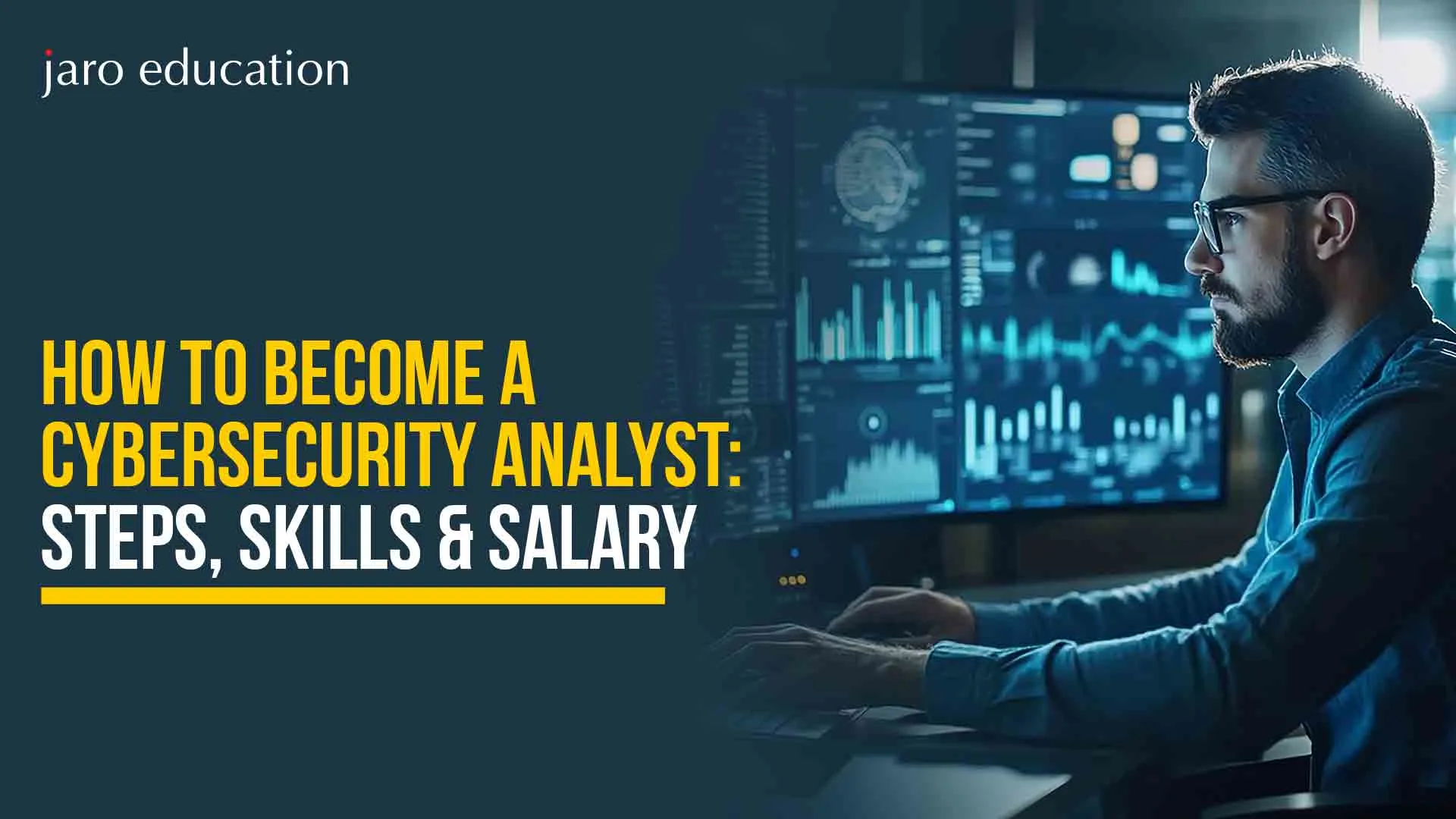
Every day, billions of data points are produced across the internet. However, what measures are in place to ensure the security of this data? In this world of digital transformation, safeguarding sensitive information cannot be overlooked. Hence, every organization, from multinational corporations to small startups, requires skilled professionals to protect their data from security threats. Here comes the role of a cyber security analyst.
Now, if you’re wondering about how to become a cyber security expert, you’re in the right place! This article will cover every step of the journey of a cyber security analyst, including essential skills, certifications, and salary.
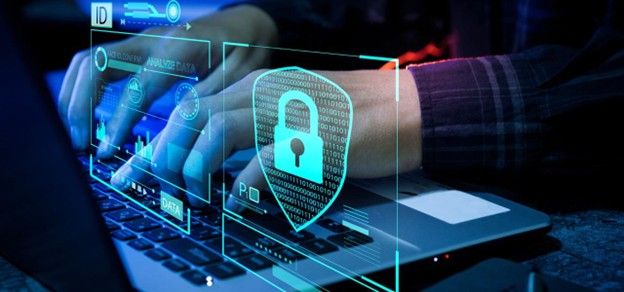
*batimes.com
Who Is a Cybersecurity Analyst?
A cyber security analyst is a professional who is responsible for protecting an organization’s network and computer systems from potential security threats. Their role includes monitoring the security health of the systems, identifying issues and vulnerabilities, analyzing security breaches, and implementing robust cyber security mechanisms. So, this role includes all the responsibilities to ensure organizations’ authoritativeness by safeguarding them from security breaches. This way, a cyber security professional also helps to protect consumer trust in an organization.
Read Also : What is the Scope of Cyber Security in 2025?
Why Is Cybersecurity Booming?
In this realm of digitalization, the growth of cyber threats is accelerating daily. From digital payment to cloud computing, cyber threats are increasing in both volume and complexity. Now, hackers are using more sophisticated technologies so they can easily target individuals, governments, and other entities.
Thus, in this surge of cybercrime the demand for cybersecurity is increasing. Side by side, roles like cyber security analyst also became one of the highly demanding professions.
A report from Cybersecurity Ventures has shown that the requirement for cyber security professionals will grow by 3.4 million in the upcoming years. Moreover, the U.S. Bureau of Labor Statistics estimated that information security jobs will increase by 35% between 2021 and 2031.
How to Become a Cyber Security Expert: Step-by-Step
Let us introduce you to Jay. He used to work at a help desk, frustrated but curious. He loved troubleshooting and spent his free time reading about hacking. Fast forward three years—he’s now a full-time cyber security analyst at a healthcare company. Here’s the path he followed (and what you can too):
1. Build a Strong Educational Base
Jay didn’t start with a fancy degree. He took online courses in computer networks and operating systems, slowly building his foundation. If you have a background in computer science, that would be great. If not, don’t worry—you just need to learn the core concepts.
2. Start With General IT Experience
Before entering cybersecurity, Jay worked in IT support, where he learnt how real-world systems operate. It’s not glamorous, but it’s a golden opportunity to build practical knowledge.
3. Take a Cyber Security Analyst Course
Next, he enrolled in a cyber security analyst course. It covered things like malware, risk analysis, and how to use tools like Wireshark and Splunk. These courses simulate real threats—great for hands-on learners.
4. Get Certified
He then earned a CompTIA Security+ certification. Later, he went for CEH (Certified Ethical Hacker). These badges don’t just look good on paper—they prove you’ve got the skills.
Read Also : Top Cybersecurity Tools Every Enterprise Professional Should Know
5. Stay Curious and Keep Practicing
Jay didn’t stop there. He joined Discord groups, tackled Capture the Flag challenges, and kept experimenting in his home lab. “There’s always something new to learn,” he says. And that’s the mindset every analyst needs.
Must-Have Skills for Cyber Security Analysts
The answers vary, but here is an overview:
1. Technical Know-How
You have to understand how systems work, including networks, firewalls, operating systems, and cloud platforms. One misconfigured setting can allow attackers to access your data.
2. Attention to Detail
You need to be attentive to even the smallest details. For instance, even a tiny shift in login patterns can indicate forceful entry, which is a sign of a security breach. Remember, it is those little things that make a big difference.
3. Problem-Solving Skills
A breach can feel like a puzzle. Why did it happen? How do we close the gap? Analysts need to think like both a defender and an attacker.
4. Ethical Mindset
When you work in cybersecurity, you see everything. Trust is non-negotiable. Many go the ethical hacking route to understand threats better, but ethics must come first.
Read Also : What is Cybersecurity Management and How Does it Work?
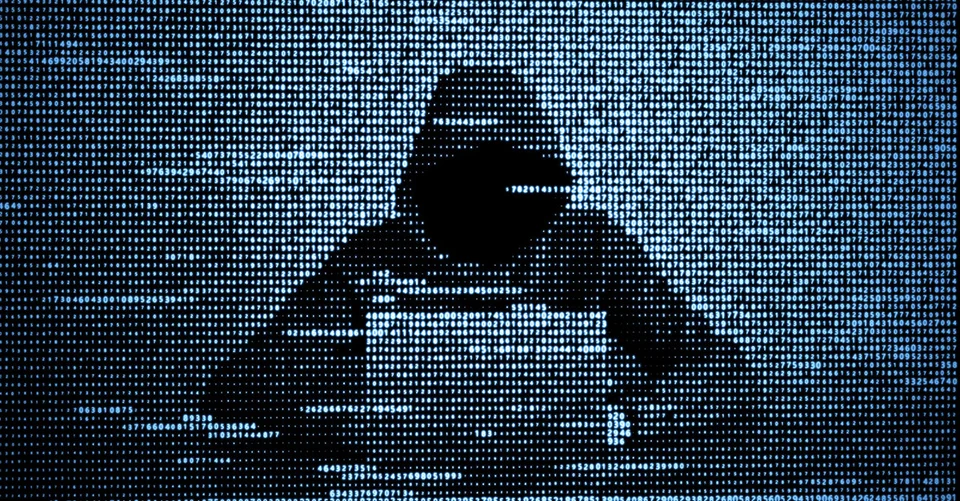
*skillcast.com
Career Outlook and Salary Guide
Let’s talk about salary! Yes—it’s good. Here’s what most cyber security analysts earn:
- Entry-Level (0-2 years): ₹4.5–₹8 LPA
- Mid-Level (3–5 years): ₹9–₹18 LPA
- Senior/Experienced (5+ years): ₹20 LPA and beyond
Read Also : Highest Paying Jobs In Cyber-Security In 2025
Of course, it depends on your location, certifications, and company. For example, a cyber security analyst in California earns ₹11,660,000 with just five years under his belt. Another in Ohio is at ₹6,247,500 and loving the work-life balance.
The best part? Salaries grow fast. And once you move into roles like security engineer, threat hunter, or CISO (Chief Information Security Officer), six-figure salaries become the norm.
Where Do Cybersecurity Analysts Work?
Cybersecurity isn’t a one-industry thing. I’ve seen analysts working in:
- Banks and Financial Firms – where one breach could cost millions
- Hospitals – to keep patient records safe
- Government Agencies – think national security
- Retail & E-commerce – because credit card data is gold
- Tech Companies – from small SaaS startups to giants like Google
One friend even works for a video game company, keeping multiplayer servers safe from cheaters and data leaks. If you love gaming, healthcare, or finance, there’s a niche for you in cybersecurity.
Read Also : What is Cyber Security? Types, Importance, and More
Tools Every Cyber Security Analyst Should Know
Once, a cyber security analyst revealed what tools she couldn’t live without. She smiled, rolled up her sleeves, and gave me a list. “Each one is like a weapon in a detective’s toolkit,” she said. And she was right. Let’s walk through some of them.
Wireshark: The Digital Microscope
Imagine you’re a doctor, and your patient is the network. Wireshark lets you see inside that patient, deep into its bloodstream. This tool captures and analyses packets of data moving through the network. Analysts use it to spot strange behavior like unauthorized logins, malware communication, or data exfiltration. It’s technical, yes—but once you get the hang of it, it feels like reading the pulse of an entire organization.
Kali Linux: The Ethical Hacker's Playground
When Jay, our earlier example, first booted Kali Linux, he said it felt like unlocking a hacker’s toolkit. This specialized operating system is packed with pre-installed tools for penetration testing, vulnerability scanning, and forensic analysis. Whether you’re testing your own systems or learning how attackers think, Kali gives you a safe, controlled environment to practice.
Splunk: Making Sense of Chaos
Log files are like diaries that servers and systems keep. But they’re massive, disorganized, and unreadable to the untrained eye. Enter Splunk—a powerful tool that organizes these logs, detects anomalies, and even visualizes threats in real time. According to an analyst, “When my dashboard lights up red, I know it’s game time.”
Metasploit: Simulating Real-World Attacks
Want to know how hackers break into systems? Metasploit lets you simulate attacks on your own network so you can patch the weak spots before the bad guys find them. It’s a bit like hiring someone to try breaking into your house, so you can make it more secure. It teaches you offensive and defensive strategies in one go.
Burp Suite: Web Security's Best Friend
Every website has entry points, and Burp Suite helps you test them. It’s the go-to tool for web application security testing. You can intercept traffic, modify data, and find vulnerabilities like SQL injections and XSS attacks. For anyone protecting online platforms, Burp Suite is essential.
These tools boost your technical abilities and give you hands-on experience that certifications alone can’t. In this field, fluently using these tools can be the difference between stopping a breach or missing it entirely.
Soft Skills That Make You Stand Out
Let’s face it—when people imagine cybersecurity, they think of someone hunched over a terminal, lost in code. But every successful cyber security analyst said the same thing: soft skills matter just as much as tech skills. Here’s why.
Curiosity: The Inner Detective
Cybersecurity isn’t always about reacting to alarms; it’s about digging deeper, noticing patterns, and asking the right questions before anyone else does. This inquisitive nature helps analysts move further in their careers through informative decision-making.
Patience: Logs Don't Speak Fast
Security logs are massive—millions of lines of raw data. Therefore, finding the needle in that haystack requires incredible patience. One missed detail could mean a vulnerability goes unnoticed. Analysts who succeed are the ones who don’t rush the process. They take the time to understand the big picture, even when it’s buried under noise.
Teamwork: More Than a Lone Wolf
Cybersecurity touches every department—IT, HR, compliance, finance, you name it. That means you have to collaborate with people who may not speak your technical language. Analysts often become team leaders simply because they can bridge that communication gap. It’s not about sounding smart—it’s about being understood.
Emotional Resilience: Staying Cool Under Fire
Picture this: it’s 2 a.m., an alert goes off, and there’s a potential breach. Everyone’s panicking—but you? You stay calm, focused, and methodical. That’s what makes a real cybersecurity professional. Being able to manage stress, make clear decisions, and lead during chaos is what separates rookies from trusted veterans.
Ethical Judgment: The Invisible Compass
You’ll often have access to sensitive data—financials, medical records, private messages. How you handle that access defines your reputation. “Do the right thing, even when no one’s watching,” one senior analyst told me. That ethical backbone is non-negotiable in this field.
Polish your Cyber Security Skills with an Executive Programme
Dreaming about pursuing a career in the cybersecurity domain? Looking for a reliable cyber security analyst course to get the right guidance? Then, enroll in the Executive Programme in Artificial Intelligence and Cyber Security for Organizations [EPAI&CSO] – IIM Indore. The programme is designed for all technical and non-technical professionals. The curriculum not only covers cyber security and risk management, but it also covers big data analytics, data visualization, AI fundamentals, and machine learning.
Final Thoughts
Cybersecurity isn’t just a career—it’s a calling. It’s about protecting people, solving digital mysteries, and outsmarting attackers every single day. If you’ve ever wondered how to become a cyber security expert, now’s your chance. Start by learning the basics. Take a cyber security analyst course. Practice, stay curious, and talk to others in the field. The demand is high, the work is meaningful, and the pay doesn’t hurt either.
Every company, every hospital, every government agency needs defenders. And you? You might just be the one they’re waiting for.
Frequently Asked Questions
Do I need a college degree to become a cyber security analyst?
No, not at all. Here is a real scenario regarding it. A guy who worked at a mobile shop got curious about hacking and started learning online during his breaks. He didn’t go to college for it—just followed a few YouTube tutorials, did a couple of free bootcamps, and slowly built his skills. It took time, but now he’s working with a midsize tech firm. Honestly, what really counts is your ability to think critically, stay calm under pressure, and keep digging until you solve the issue.
What's the actual difference between a cyber security analyst and a cyber security expert?
Analyze it in this way –
Imagine two people in a castle. The analyst is the one who walks the walls, spotting anything odd, responding to alarms, and keeping things secure in the moment. The expert? They’re in the war room—building the strategy, setting up defenses, and thinking five steps ahead. Both are crucial, but their roles, experience, and focus are quite different.
Which course is best if I want to become a cyber security analyst?
It depends on your background and how you learn best. People starting with CompTIA Security+ do great. Others preferred learning by doing, so they used TryHackMe or joined Discord groups where beginners help each other out. Pick something you won’t give up on—because sticking with it is more important than where you start.













